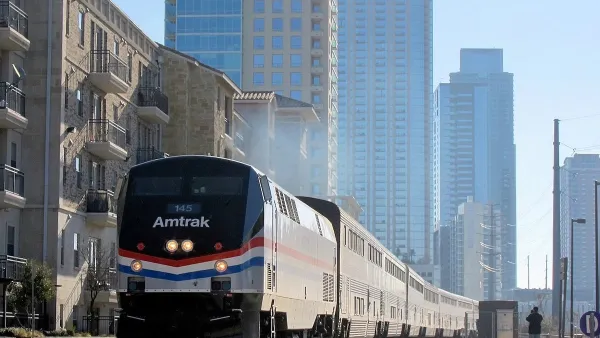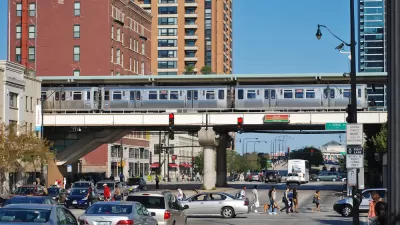Should the tolls you pay to traverse a bridge or highway go directly to the upkeep of that roadway, or should they go to fund transportation projects, such as public transit? Five experts debate this question in the New York Times Opinion Pages.
With cash-strapped states raiding toll revenues in their search for funding sources for a range of transportation projects, Sam Staley, economic development policy analyst with the DeVoe L. Moore Center at Florida State University and the Reason Foundation, argues against "robbing Peter to pay Paul," because he believes "[d]iverting toll revenue reduces transparency and undermines public confidence over the long run."
Todd Litman, executive director of the Victoria Transport Policy Institute in British Columbia, delivers the counter-argument, that due to shifting demographic and economic trends, and the "uncompensated costs" of vehicle traffic, "it makes sense to shift money and road space away from
automobile use and toward alternatives, like walking, cycling and public
transportation, particularly in large urban areas where vehicle traffic
imposes significant congestion, accident and pollution costs."
Other viewpoints are offered by Lexer Quamie, policy counsel for the Leadership Conference on Civil and Human Rights; Edward Rendell, former governor of Pennsylvania and mayor of Philadelphia; and C.W. Marsella, former general manager and chief executive of the Denver Regional Transportation District.
FULL STORY: You Pay the Toll. Where Should That Money Go?

Maui's Vacation Rental Debate Turns Ugly
Verbal attacks, misinformation campaigns and fistfights plague a high-stakes debate to convert thousands of vacation rentals into long-term housing.

Planetizen Federal Action Tracker
A weekly monitor of how Trump’s orders and actions are impacting planners and planning in America.

San Francisco Suspends Traffic Calming Amidst Record Deaths
Citing “a challenging fiscal landscape,” the city will cease the program on the heels of 42 traffic deaths, including 24 pedestrians.

Defunct Pittsburgh Power Plant to Become Residential Tower
A decommissioned steam heat plant will be redeveloped into almost 100 affordable housing units.

Trump Prompts Restructuring of Transportation Research Board in “Unprecedented Overreach”
The TRB has eliminated more than half of its committees including those focused on climate, equity, and cities.

Amtrak Rolls Out New Orleans to Alabama “Mardi Gras” Train
The new service will operate morning and evening departures between Mobile and New Orleans.
Urban Design for Planners 1: Software Tools
This six-course series explores essential urban design concepts using open source software and equips planners with the tools they need to participate fully in the urban design process.
Planning for Universal Design
Learn the tools for implementing Universal Design in planning regulations.
Heyer Gruel & Associates PA
JM Goldson LLC
Custer County Colorado
City of Camden Redevelopment Agency
City of Astoria
Transportation Research & Education Center (TREC) at Portland State University
Jefferson Parish Government
Camden Redevelopment Agency
City of Claremont





























